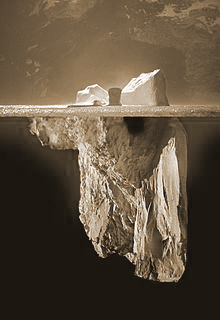Editor’s Note:
I added on the sidebar an image of the boy Bran under the tree of his house in Winterfell because the central message of this site has not reached even several regular visitors: if the white man does not recover his story, the apocryphal story for us that the Jews invented will lead to white extinction. (In fact, I have just used that image for my laptop’s desktop, and I recommend you do the same.)
This is something so obvious that even hurts to repeat it, but it apparently does not fit into the little heads of the people of the alt-right because, as I said in my previous entries, many have not even read the story of their race that Pierce wrote.
Of course, Who We Are is just an introduction to a more scholarly study (which includes what we have been translating, step by step, from Deschner’s ten books). But the fact that white nationalists are not even able to read Pierce’s entertaining book cannot but mean that, unlike the Jews who weaponize their stories in their struggle against us, whites are unwilling to review the Jewish POV about their past. And only a historical review of the white man’s past can shed light on how it was that we arrived at the darkest hour in the West.
When writing these words I cannot help but remember the ubiquitous advertisements throughout London that I saw on my last visit: advertising visuals of black men with white English women!
Where is your fucking hate, English readers of Rudyard Kipling’s poem about the wrath of the awakened Saxon? Why can’t you become an exterminationist like me consumed by hatred? Why is there so much negation and abnegation in your hearts? Why is there so little fate in your looks?
Following what I said in my recent posts using the end of Game of Thrones, I must add that white nationalism will continue to be obvious quackery as long as they are unable to face the most basic facts of their own story.
Candida Moss is one of those English liberals unable to see that their liberalism is the most destructive ideology for their race that has appeared in history: a Night King whose objective is to wipe out the entire white race. But her book, The Myth of Persecution: How Early Christians Invented a Story of Martyrdom, sheds light on one of the myths that helped Judeo-Christianity conquer the Aryan soul so long ago. Following are some excerpts from the introduction to Candida’s book:
______ 卐 ______
The Myth of Christian Martyrdom
What if Christians weren’t continually persecuted by the Romans?
The evidence for Christian martyrdom is of three basic types: evidence for persecution from Roman sources and archaeology, stories about martyrs, and descriptions of Christian martyrdom in the writings of church historians. On the Roman side, there is very little historical or archaeological evidence for the widespread persecution of Christians. Where we do have evidence for persecution, in the middle of the third century, it is not clear that the Romans were specifically targeting Christians at all. Even the so-called Decian persecution in 250 CE was about political uniformity, not religious persecution. Nothing in our evidence for Decius’s legislation mentions targeting Christians. Before Decius, the prosecution of Christians was occasional and prompted by local officials, petty jealousies, and regional concerns. That Christians saw themselves as persecuted and interpreted prosecution in this way is understandable, but it does not mean that the Romans were persecuting them. This interpretation does not match up with the political and social realities: Christians were ridiculed and viewed with contempt, and they were even sometimes executed, but they weren’t the subjects of continual persecution.
Then there are the stories about early Christian martyrs, commonly known as “martyr acts” or martyrdom stories. Most of these stories have been handed down from generation to generation and accepted as authentic on the basis of tradition. The vast majority of these stories, however, were written long after the events they purport to describe. There are literally hundreds of stories describing the deaths of thousands of early Christian martyrs, but almost every one of these stories is legendary. There are many pious reasons why someone might choose to fabricate a story about a martyr, and there are plenty of examples of genuine errors, but for those interested in the history of martyrdom, fabrication causes a problem. In some of these cases, scholars are not sure that the people described in these stories even existed, much less that they were martyred.
The problem with forged martyr stories was so widespread that in the seventeenth century a Dutch Jesuit priest named Héribert Rosweyde began to sort through the European manuscripts that preserved the earliest stories of the martyrs. The size of the task of cataloging thousands of manuscripts proved to be too much for Rosweyde alone, and the project was eventually taken over by a group of scholars led by an ambitious priest named John Bolland. The Society of Bollandists, as they came to be known, spent the next three centuries culling the corpus of hagiographical literature (literature pertaining to the saints) into a huge sixty-eight volume collection of texts about the saints. Of these sixty-eight volumes of texts and commentary, they decided that only a handful of stories were historically reliable. The rest—the vast majority—had been thoroughly edited or had simply been made up.
Scholars of early Christianity agree that there is very little evidence for the persecution of Christians. Although there are references to the deaths of Christians in the writings of the early church, these are vague and often exaggerated. For the first two hundred and fifty years of the Christian era there are only six martyrdom accounts that can be treated as reliable. These stories describe the deaths of Christianity’s oldest and most beloved saints: the elderly bishop Polycarp, the young mothers Perpetua and Felicity, the teacher Ptolemy, the philosopher Justin Martyr, the martyrs of Scillium, and the brave members of the churches of Lyons and Vienne in ancient Gaul, modern-day France, who endured unspeakable tortures at the hands of the Romans. Even today some of these martyrs are mentioned in the religious services of the Catholic Church.
When we look closely at even these stories, however, it becomes clear that they have been significantly edited and changed. They refer to theological ideas that didn’t exist in the period described in the stories and contain elements borrowed from other ancient sources. Details like these suggest that even the earliest stories have been tampered with…
There’s almost no evidence from the period before Constantine, or the Age of the Martyrs, to support the idea that Christians were continually persecuted. Most of this information comes from later writers, especially from the anonymous hagiographers who edited, reworked, and even forged stories about martyrs during periods of peace. The stories of beloved martyrs like St. Valentine, St. Christopher, and St. George were written long after the time in which these people supposedly lived, by authors who were preserving folklore, not facts.








